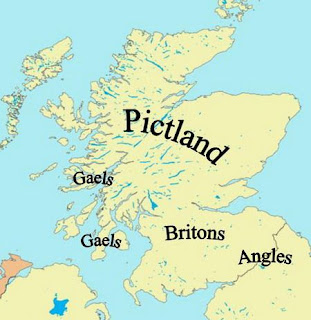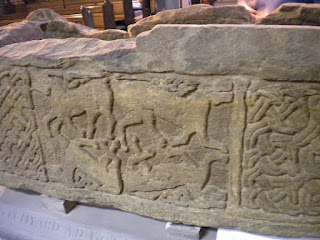Welsh Britonic

Central and Southern Scotland Place names rooted in Welsh Many place names in central and southern Scotland are derived from British, the language very close to Welsh which was spoken by the Northern Britons, Glasgow, originally Glasgau, means the green hollow in Britonic. Edinburgh first appears in Welsh sources as the fort of Din Eidyn. When the Bernicians took over they translated this into English as Edinburgh. Lanark Lanerc: the clearing (Welsh-lanerch). Peebles-Pebyl: the shielings (Welsh-pebyll). Partick-Perthec: the copse (Welsh-perth); also the derivation of Perth, Paisley-Pasaleg a church word based on Basaleg, a Welsh borrowing from Latin-basilica, mother-church. Penicuik-Pen y gog: cuckoo's headland. Cramond Caer Amond: the fort on the River Almond. Moscow-Maes coll: Hazelfield (Welsh-maes and coll). Bathgate-Baeddgoed: Boar-wood (Welsh-baedd and coedi) Melrose Moelrose: the bald/bare headland. Ecclefechan: perhaps the li...


